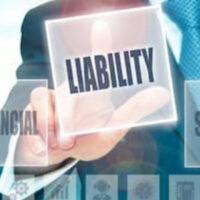Premises Liability Claims in Maryland

Sadly, injuries due to shootings and other security issues on property, including at schools, are becoming more and more common, including here in Maryland, where students and staff have been injured after shootings in Baltimore, for example, due to inadequate security being in place. While the Maryland Tort Claims Act places a damage cap of up to $400,000 per victim and $800,000 per incident where a government entity (such as a school) has been negligent, for example), this cap is not applicable to private landowners, including business establishments, where people are also often injured.
Like other premises liability doctrines, in Maryland, land and property owners have a duty to maintain safe premises, and premises liability claims involve liability to landowners for injuries to others that occur on someone else’s property due to dangerous or unsafe conditions on the property or other circumstances (such as inadequate security), depending upon whether the injured plaintiff was an invitee, licensee, or trespasser (with invitees receiving the most protection and trespassers the least).
Factors That Determine Liability
Whether or not a private landowner is held responsible depends upon:
- Whether the injury occurred on this property due to the property’s condition or other circumstances existing there;
- Whether the property owner knew or should have known about the dangerous condition and failed to address it; and
- Whether the property owner had sufficient time to address the issue.
Degree of Liability Depends Upon Plaintiff’s Status
However, the degree of liability depends upon the status of the plaintiff injured, with injured plaintiffs falling into one of four of the following categories:
- Bare licensee: Someone who enters the property with permission for their own business purposes. Property owners do not owe the same standard of care to bare licensees as they do to invitees and licensees, but they cannot create new hazards that pose a danger to them
- Invitee: Someone who is invited to the property; typically for the property owner’s business purposes (for example, a customer in a store). Property owners must ensure that their property remains hazard free and clearly mark any existing hazards
- Licensee: Someone who is invited onto property for purposes other than business, such as a guest to a party. Property owners must keep their property free of dangerous conditions and mark any existing hazards clearly
- Trespasser: Someone who enters without permission. Property owners do not owe any duty to trespassers except not to intentionally cause harm to them. However, if someone trespasses on property with an “attractive nuisance” (such as a child drawn to and injured in an unsecured swimming pool), they could be held liable
Evaluating Your Case: If You Have Any Questions or Concerns About an Injury On Property, Contact Our Maryland Personal Injury Attorneys
The duty owed by the property owner can only be determined once the trial court determines which category plaintiffs fit into. Evaluating the rest of a claim involves an evaluation of the specific facts of the case, such as where the condition existed, how obvious it was, who knew about it, how long it existed, etc. If you have been injured on property due to someone else’s negligence, our La Plata & Waldorf personal injury attorneys can evaluate your potential claim and work with you to ensure that your injuries and any other harm you’ve suffered is rectified. Contact The Law Office of Hammad S. Matin, P.A. today to find out more.
Resource:
baltimoresun.com/education/bs-md-ci-michael-marks-press-conference-20190222-story.html
